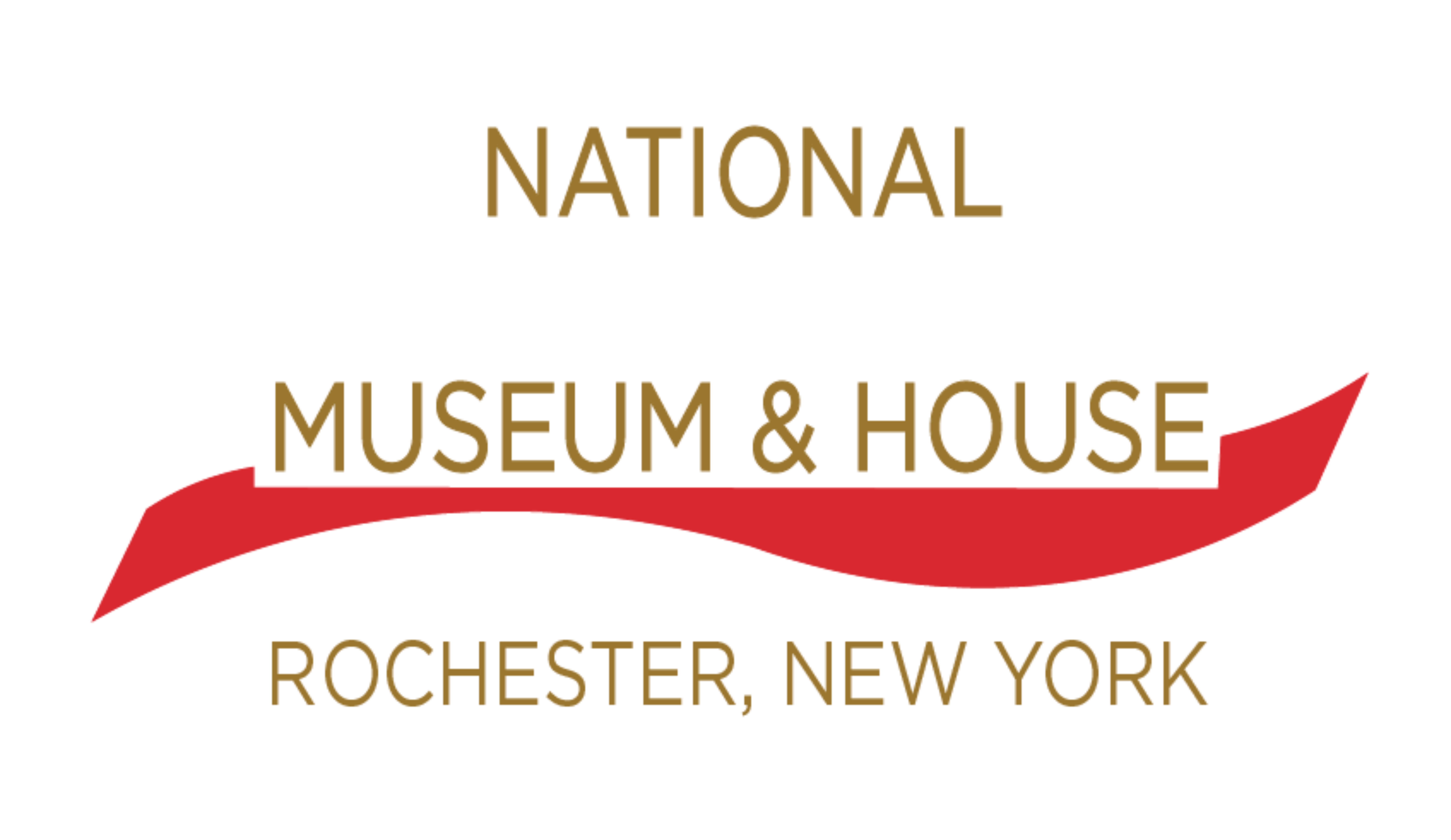The nurses who attended Susan B. Anthony in her last illness
In February of 1906, Susan B. Anthony attended a woman’s rights convention in Baltimore. Although in failing health, she traveled on to Washington, D.C. where a birthday celebration was held in her honor. There she spoke in public for the last time, remembering the long years and campaigns for equal rights, naming many of the original workers in the cause who had already passed on without enjoying success in their long struggle. She then addressed those present and uttered her most famous words “….with such women [as all of you] consecrating their lives, failure is impossible.”
She returned home and took to her bed. Two nurses attended her, Margaret Shanks and Mae Nichols. Her sister, Mary, and dear friend, Anna Howard Shaw, kept vigil at her side. The nurses were with her around the clock. Three weeks later she died, there in her home on Madison Street in Rochester, on March 13, 1906 at the age of 86.
At her bedside when the end came were Mary S. Anthony, her sister, Rev. Anna Howard Shaw, of Philadelphia; Miss Lucy Anthony, a niece of Philadelphia; Dr. Ricker, who attended her throughout her illness, and her two faithful nurses, Miss M. A. Shanks and Miss Mabel Nichols . . .”
Mae Nichols held a diploma from Nurses Training School, Union Hospital, Lynn, MA and was visiting Miss Lizbeth Tripp, of the Homeopathic Hospital when summoned for night duty to Miss Anthony. She was paid $56.30 for services to Miss Anthony as “the night nurse.” Later, the New York State Suffrage Association sent $50 to the National American Woman Suffrage Association (NAWSA) for her lifetime membership.
Margaret Shanks was born in Fort Patrick, Scotland, April 25, 1867. She came to the U.S. at age 14-15, lived in Hopewell, NY. She had no siblings and never married. She was devoted to her Christian faith, retained her Scottish brogue, committed to her “nurses’ training,” and wrote poetry. She graduated from the Training School of Nurses, Rochester Homeopathic Hospital (later Genesee Hospital) in 1897.
Shanks knew nothing about suffrage or Susan B. Anthony’s lifetime work and said to her : “I only have time for my training as a nurse.” Miss Anthony replied: “That is all that will be required of you, the routine of the sick room.”
Susan B. Anthony told everyone, “My nurses are without parallel.”
We know that Margaret Shanks remained active in the United Church, and in American Legion, and was tenderly regarded in her community. She was forever changed by her service to the Anthonys. She was involved in preservation of the Anthony House after it was acquired by the Rochester Federation of Women’s Clubs in 1945. She told the Federation president, Martha Howard, that she could help “getting things in their proper places.”
Margaret Shanks later wrote this poem to honor Susan B. Anthony:
All Hail—thou flower of womanhood
Thy torch still burns through ages dim
Oppression felt, by kindred souls,
Engaged thy mind, the fight to win.
Thy life—a monument down the ages
A Lincoln spirit, guiding star
Let us now lose the gleam, the ray
Still prompting leading from afar.
Thy place in history, stands for aye
Thy soul on High—’mid radiance bright
Lead on—we follow, heed thy call
EMANICPATE—rise to the Light.
To read more about Margaret Shanks, click here for a PDF of the article “Margaret Shanks, Nurse to Susan B. Anthony: Exploring the Extraordinary in the ‘Ordinary’ Nurse, ” by Elaine Sorensen Marshall, PhD, RN. From Advances in Nursing Science, Vol. 32, No. 1, pp. 43–54, © 2009 Wolters Kluwer Health | Lippincott Williams & Wilkins
Watch “Susan B. Anthony: An Advocate for Nursing” to learn why Susan B. Anthony is important to nurses!
Want to share the story of Susan B. Anthony and Nursing?
Become a Nursing Friend of the National Susan B. Anthony Museum & House!
